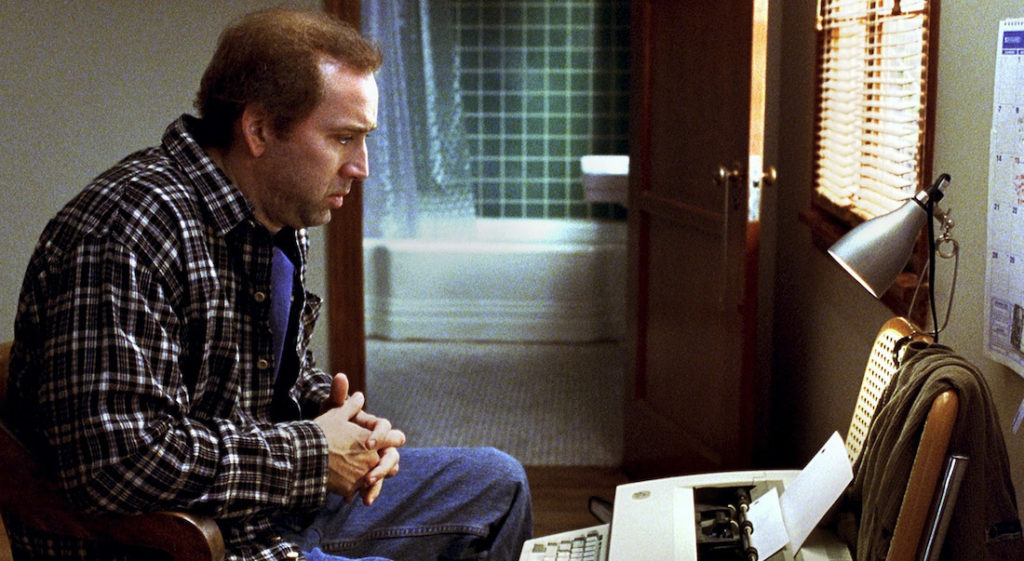There’s a reason why a mentorship plays such a vital role in stories found within movies, television, theater, and literature—mentors mirror real life. There’s not a person on Earth who hasn’t been positively affected by a mentor, be it a teacher, coach, parent, instructor, or any other type of mentor we come across in life.
In the intricate and often unpredictable world of screenwriting, a mentorship can be the lighthouse guiding you through the murky waters of the film and television industry. From honing your screenwriting craft to navigating the complex networks of the industry, the benefits of mentorship are immeasurable. But who exactly is a worthy mentor for your screenwriting career?
What Makes a Screenwriting Mentor a Great One?
The best screenwriting mentors come in many shapes and forms. They can be mentors you’ve met through personal connections (family members, friends, acquaintances, teachers). Mentors can be industry insiders you’ve connected with through screenplay submissions, cold queries, and networking. They can be an industry connection made through screenplay competitions or fellowship placements, like ScreenCraft’s own.
Whatever way they have connected with you, the great mentors have the perfect balance of traits that can help you on your screenwriting journey.

‘The Empire Strikes Back’ (1980)
1. Professional Expertise and Experience
A great screenwriting mentorship has a solid foundation in the craft and business of screenwriting. Mentors need a deep understanding of storytelling, structure, character development, and dialogue. These traits generally come from having real-world experience in the film and television industries, whether through having their work produced, being involved in the development process, or by way of screenwriter management and representation.
These types of expertise allow mentors to offer practical, informed advice and insights that can help you hone your craft and navigate the complexities of the industry.
2. Commitment to Mentoring
Great mentors are genuinely interested in the mentorship. They need and want to pass on their knowledge and wisdom and are committed to your growth and development, sometimes by giving back or wanting to represent (managers and agents) and collaborate with you (producers, development executives, directors).
This commitment means they want to invest time and energy into the mentoring relationship, providing consistent and thoughtful feedback.

‘Remember the Titans’ (2000)
3. Excellent Communication Skills
The ability to communicate ideas, feedback, and advice clearly and constructively is crucial. A great mentor knows how to deliver feedback in an encouraging yet honest way, helping you understand your areas for improvement without discouraging you.
4. Ability to Inspire and Motivate
Screenwriting is difficult. Inspiration will be a significant part of your screenwriting journey. You’ll need plenty of inspiration and motivation along the way. Sometimes, it’s difficult to conjure that on your own.
A great mentor inspires you not only through their own achievements and work ethic but also by encouraging you to push your boundaries and believe in your potential. The best screenwriting mentors will motivate you to set ambitious goals and challenge you to reach new creative heights.
5. Professional Integrity
A great mentor leads by example, demonstrating honesty, respect, and professional integrity. They encourage and practice ethical behavior in the industry and teach you the importance of respect for copyright, originality, and the collaborative nature of film and television production.
Read More: Seven Traits of a Good Screenwriting Mentor

‘Dead Poets Society’ (1989)
7 Advantages of a Mentorship
With that in mind, let us dive into several advantages mentorships bring to a screenwriter’s career.
1. Personalized Guidance and Feedback for Screenwriters
One of the most immediate benefits of mentorship is receiving personalized feedback on your work. Unlike generalized advice found in screenwriting books, courses, and panels, a mentor can provide tailored guidance to your unique strengths and weaknesses.
There’s no single way to write a successful screenplay or obtain a successful career in screenwriting. Every professional screenwriter is different, and each came up through the ranks in vastly different ways.
You can’t expect a single piece of advice found within a book, course, or interview to inform you as much as personalized guidance and feedback from a mentor. Mentors can cater their guidance and feedback specific to your concepts, scripts, stories, characters, and career preferences as opposed to general guidelines and expectations.

‘Spider-Man: Into the Spider-Verse’ (2018)
2. Industry Insights and Networking
The screenwriting industry thrives on networking and insider knowledge. Industry veteran mentors can offer invaluable insights into the workings of the film and television world. They can help demystify the process of selling a script, finding representation, and understanding what producers and studios are looking for.
Here’s where it gets even better. Mentors like these can introduce you to a network of industry professionals, opening doors that might otherwise remain closed to newcomers like you.
3. Accountability and Discipline
Discipline is key when it comes to being a professional screenwriter. Self-discipline is perhaps the greatest achievement a screenwriter can make in their screenwriting career.
However, it takes time to attain that level of discipline. Having a mentor can instill a sense of accountability:
- They can give you deadlines
- They can teach you the guidelines and expectations of the industry
- They can tell you what you need to do to make your goal
Knowing that someone is invested in your progress and expects to see your work can motivate you to maintain a disciplined writing schedule. This accountability can be crucial in completing scripts and staying productive in the face of procrastination or writer’s block.
Read More: Seven Reasons Why Writer’s Block is BS

‘Adaptation’ (2002)
4. Honing Your Craft
Screenwriting requires continuous refinement. You always need to sharpen your skills and add tools to your toolbox. Mentors can introduce new techniques, styles, and perspectives to help expand your screenwriting arsenal in a few ways:
- Challenge you to push your boundaries
- Help you to experiment with new genres
- Help you to explore deeper character development
- Offer industry insights
- Share knowledge from previous projects
If you’ve got a great screenwriting mentor, chances are they know a thing or two about nearly every aspect of screenwriting, screenplays, story and character development, etc. Use them. Pick their brain. Ask them to challenge you.
You don’t want a mentor to tell you what you want to hear. You want a mentor to tell you what you need to hear.
5. Career Development and Strategy
This is the main thing that mentors can do—help with career development and strategy.
Many screenwriters believe that mentors should be the ones to sell your script for you by using their industry connections. This hardly ever happens, and to have those expectations for your mentors is unfair.
The one exception is a mentor who has taken you under their wing because of your interest in a project of yours. That does happen, yes. But even then, it’s very difficult to get anything sold and made—even for the top-tier producers, development executives, and screenwriters.
A mentorship can play an even more significant role by helping to shape your career trajectory. Mentors can advise you on which projects to pursue, how to brand yourself as a writer, and when to take risks. Their experience can be invaluable in avoiding common pitfalls and making informed choices that align with long-term career goals.
As we’ve said, it’s very difficult to sell a screenplay and become a professional screenwriter. The odds are against every single person who has aspirations of a screenwriting career. But when you have a mentor in your corner, your odds of breaking through only heighten.

‘Creed’ (2015)
Where Can Screenwriters Find Screenwriting Mentors?
Luckily, there are a few resources available for screenwriters to use to find a mentorship:
- Script Consultant Services
- Writers Groups
- Film Schools
- Networking Maps
- Attending Film Festivals
- Placing High in Screenwriting Contests, Competitions, and Fellowships
—
Everyone needs a mentor. In the film and television industry, they can be an invaluable piece of the puzzle of success. Mentors don’t need to be with you every step of the way. You may have an early mentor that sets you on the right path to begin with. You will likely then meet many mentors along the way.
Don’t use them as a way to sell your work. Use them as a way to make your work sellable.
CHECK OUT OUR PREPARATION NOTES SO YOU START YOUR STORY OFF ON THE RIGHT TRACK!
Ken Miyamoto has worked in the film industry for nearly two decades, most notably as a studio liaison for Sony Studios and then as a script reader and story analyst for Sony Pictures.
He has many studio meetings under his belt as a produced screenwriter, meeting with the likes of Sony, Dreamworks, Universal, Disney, Warner Brothers, as well as many production and management companies. He has had a previous development deal with Lionsgate, as well as multiple writing assignments, including the produced miniseries Blackout, starring Anne Heche, Sean Patrick Flanery, Billy Zane, James Brolin, Haylie Duff, Brian Bloom, Eric La Salle, and Bruce Boxleitner, the feature thriller Hunter’s Creed, and many Lifetime thrillers. Follow Ken on Twitter @KenMovies and Instagram @KenMovies76
The post The Importance of Mentorship in Writing Careers appeared first on ScreenCraft.
Go to Source
Author: Ken Miyamoto


